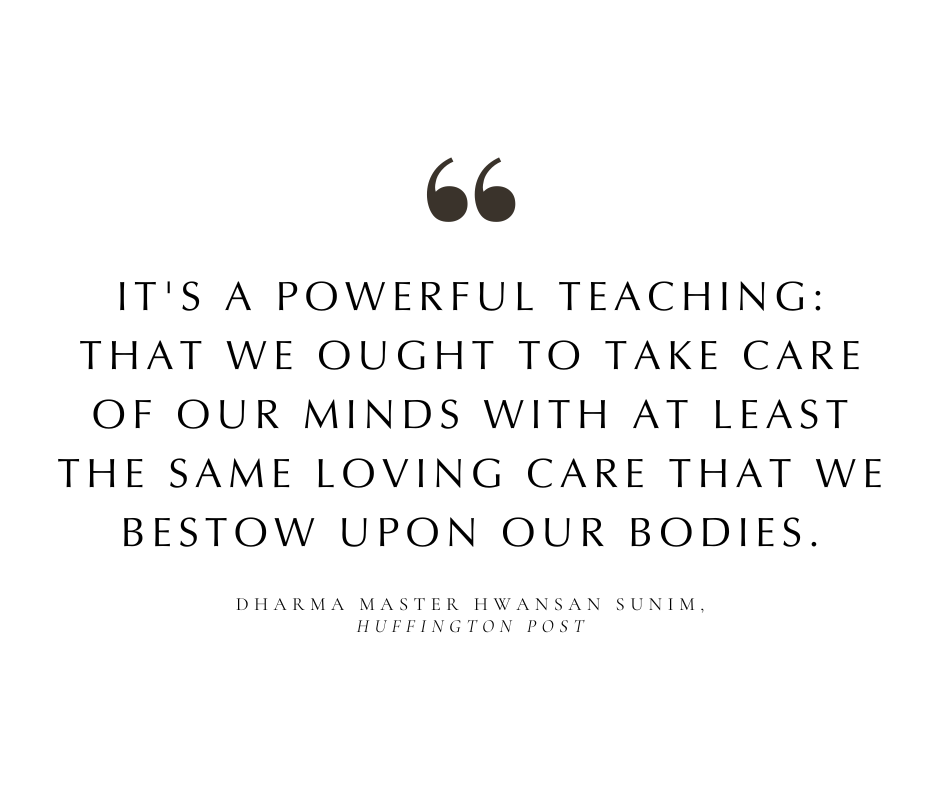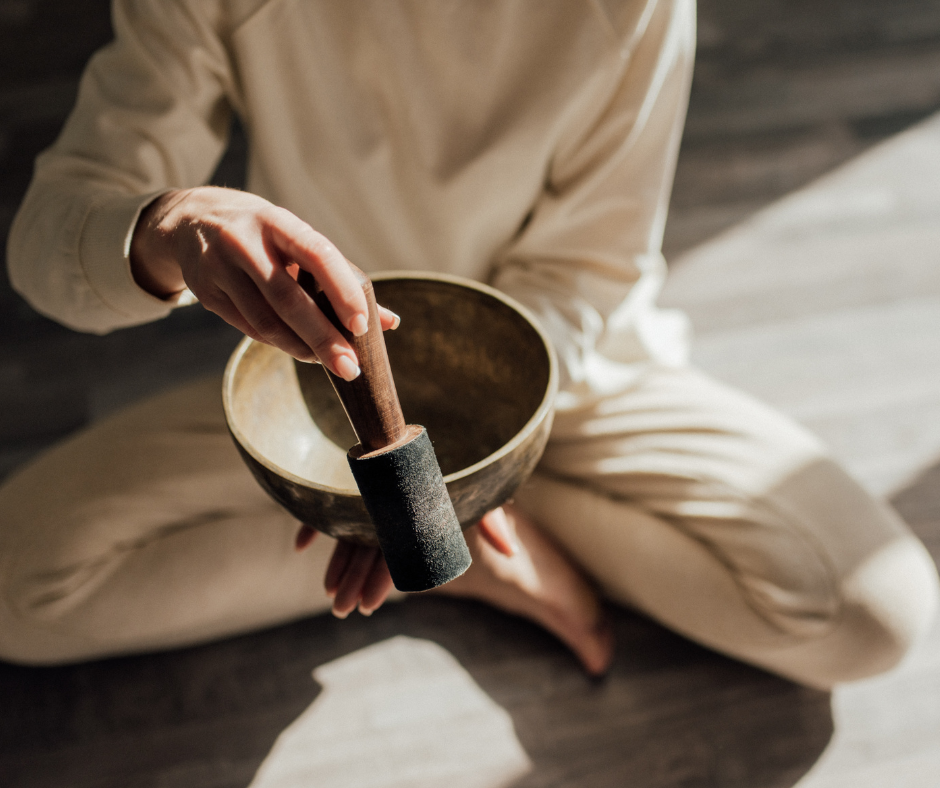

What is Spiritual Hygiene, And Can Non-Religious People Incorporate These Practices?
Summary
Spiritual hygiene encompasses practices aimed at cleansing and nourishing the mind, body, and spirit, leading to reduced stress, improved emotional health, enhanced self-awareness, and a deeper sense of connection and positivity. From meditation and mindfulness to grounding in nature and energy clearing, these practices can be tailored to fit a secular lifestyle, focusing on their psychological and physical benefits without appropriating cultural or religious elements. By incorporating spiritual hygiene into daily routines, individuals can enjoy a holistic approach to well-being, ensuring these practices enrich life in a balanced, mindful, and respectful manner.
Reflection Questions
- Reflect on your current self-care routine. How do you incorporate practices that nurture not just your body, but also your mind and spirit? Are there aspects of your spiritual well-being that you feel have been neglected or could benefit from more attention?
- Consider the origins of the spiritual hygiene practices you are interested in or already practicing. How can you engage with these practices respectfully, ensuring you’re not appropriating cultural or religious elements? What does practicing spiritual hygiene in a secular manner look like to you, and how can it be integrated into your life in a way that aligns with your values?
- Reflect on the balance between your spiritual hygiene practices and other aspects of your life. How do you ensure that these practices enhance your well-being without becoming obsessive or overwhelming? What boundaries might you set to maintain this balance?
Journal Prompt
Reflect on your current self-care practices and how they contribute to your spiritual hygiene. Consider moments when you feel most at peace, balanced, or energized. What activities are you engaging in? Are there practices mentioned in the article that you haven’t tried but feel drawn to? Write about how you can integrate these new practices into your routine. Think about the balance between doing and being; how can you ensure that your spiritual hygiene practices enhance your life without becoming another task on your to-do list?
Creative women often juggle multiple roles and face unique challenges. As such, finding solace and strength within can be transformative. Spiritual hygiene, a practice as nurturing as it is empowering, offers a path to reclaiming inner peace and vitality. Rooted in ancient wisdom yet adaptable to modern life, these practices provide a means to cleanse the mind, body, and spirit of negativity, leading to enhanced well-being and resilience. Whether you’re seeking to reduce stress, improve emotional health, or simply cultivate a deeper connection with yourself and the world around you, spiritual hygiene can be a deeply personal and rewarding journey.
Importantly, engaging in these practices as a secular individual allows for a respectful appreciation of their origins, ensuring that we honor and acknowledge the cultural traditions from which they stem, without appropriation. In this article, we will describe different spiritual hygiene practices, outline the myriad benefits of good spiritual hygiene, and explain how to navigate these practices with sensitivity and respect. We hope that by making your spiritual health a priority, you can navigate your ongoing spiritual journey in an authentic and meaningful way. Read on to learn more!
What is Spiritual Hygiene?


So, what is spiritual hygiene and how does it compare to physical hygiene? Spiritual hygiene refers to practices and rituals aimed at clearing negative energies and maintaining a positive spiritual state. Just as maintaining your physical health involves routines to keep the body clean and healthy, practicing spiritual hygiene focuses on cleansing and protecting one’s energy field or aura (spiritual energy). The concept is rooted in the belief that emotional, mental, and spiritual well-being can be affected by both the negative energy and positive energy we encounter and retain.
Practices associated with spiritual hygiene can vary widely depending on cultural, religious, and personal beliefs but often include the following. These spiritual practices are intended to help human beings maintain a sense of spiritual balance, cleansing negative energies from their surroundings, and foster a deeper connection to the self and the universe. The specific practices and their significance can vary, but the underlying principle is to nurture and protect one’s spiritual well-being while enriching our spiritual selves. We’ll detail the benefits of prioritizing spiritual hygiene later on in this article.
Meditation and Mindfulness
Meditation and mindfulness practices serve as the cornerstone of spiritual hygiene for their profound ability to foster a clear, calm mind and a state of present-moment awareness. By sitting in silence, focusing on the breath, or engaging in mindful movement, individuals can significantly reduce stress levels and promote an overarching sense of peace and well-being. These and other spiritual practices are not just about quieting the mind; they’re about cultivating a deep connection with oneself, allowing for greater emotional regulation, enhanced focus, and a heightened sense of inner tranquility that permeates all aspects of life.
Smudging
Smudging is an ancient practice rooted in various indigenous cultures, involving the burning of sacred herbs like sage, palo santo, or sweetgrass. This ritual is believed to cleanse a person or space of negative energy, purifying the surroundings and inviting positive vibrations. The act of smudging can be a powerful way to reset the energy of a living space, an object, or one’s aura, creating a sacred atmosphere of clarity, protection, and healing. It’s a practice that connects individuals to the earth and to ancestral wisdom, offering a moment to honor the spiritual significance of these natural elements.
Grounding or Earthing
Grounding, also known as earthing, involves making direct physical contact with the earth to balance one’s energy and release excess energy back into the ground. This simple yet profound practice, such as walking barefoot on grass, sitting on the ground, or touching a tree, can help reduce inflammation, improve sleep, and increase energy levels. Grounding is based on the principle that the earth possesses a natural charge that can help neutralize free radicals in the body, thereby promoting physical and emotional well-being.
Connecting with Nature


Spending time in natural settings is a fundamental aspect of spiritual hygiene, offering an unparalleled opportunity to rejuvenate and cleanse one’s energy. Nature, with its inherent beauty and tranquility, provides a space for reflection, inspiration, and grounding. Whether it’s a walk in the forest, a moment by the sea, or simply sitting in a garden, connecting with the natural world can help reduce stress, improve mood, and foster a sense of deep, inner calm. This practice reminds us of our connection to the earth and the cyclical nature of life, encouraging a perspective of unity and interdependence.
Energy Clearing
Energy clearing encompasses a variety of techniques aimed at cleansing and balancing the aura or energy field surrounding an individual. Practices such as Reiki, sound healing, or guided visualizations work to remove energetic blockages and harmonize the body’s energy centers, or chakras. These methods can lead to a feeling of lightness, clarity, and revitalization, making space for new, positive energy and facilitating a deeper connection to one’s intuitive self. Energy clearing is a holistic approach to wellness, addressing the unseen forces that influence our physical and emotional states.
Protective Visualization
Protective visualization is a mental exercise where individuals imagine a shield or bubble of light around themselves to guard against negative energies. This practice is rooted in the belief that our thoughts and intentions can influence our energetic field, offering protection and resilience against external negativity. By visualizing a barrier of light or a protective cloak, one can create a psychic defense mechanism, enhancing feelings of safety, confidence, and inner peace. It’s a versatile technique that can be used anytime, anywhere, to maintain one’s energetic integrity.
Spiritual Baths
Spiritual baths involve immersing oneself in water mixed with salts, essential oils, herbs, or other ingredients believed to have cleansing and protective properties. This ritual is more than just physical bathing. It’s a sacred act of washing away negative energies, emotional burdens, and spiritual blockages.
The combination of natural elements and the intention set during the bath can result in a profound sense of purification, renewal, and connection to the divine. Spiritual baths offer a moment of reflection, relaxation, and rejuvenation, serving as a holistic method for nurturing body, mind, and spirit.
Affirmations and Intentions
Affirmations and intentions are positive statements or objectives set with the purpose of shifting one’s mindset and energy towards a more optimistic state. Basically, they encourage more positive energy in your spiritual life. These powerful tools can reprogram the subconscious mind, influencing thoughts, behaviors, and outcomes.
Regularly practicing affirmations and setting clear intentions can manifest changes in one’s life, attracting experiences, and circumstances that align with one’s desires and values. This practice encourages a proactive stance on life, empowering individuals to become co-creators of their reality.
Which Cultures and Religions Incorporate Spiritual Hygiene Practices?
Spiritual hygiene practices can be found across a wide range of cultures and religions, reflecting the universal human concern with the health of the spirit or soul, as well as the physical body. These practices, while varying greatly in form and focus, share the common goal of cleansing, protecting, and strengthening the individual’s spiritual or energetic well-being. Below are a few examples of religions and cultures that have a spiritual practice as part of their observance.
Indigenous Cultures
Many Indigenous cultures around the world use smudging with sacred herbs like sage, cedar, and sweetgrass as a way to cleanse a person or space of negative energies. Rituals and ceremonies often include elements designed to restore spiritual balance and connection to the earth.
Hinduism
In Hindu culture, practices such as puja (ritual worship), the use of sacred water (from the Ganges River, for example), and the burning of incense are part of spiritual hygiene, aimed at purifying the self and the environment. The concept of sattvic living emphasizes purity in thoughts, diet, and lifestyle.
Buddhism
Meditation, mindfulness, and the use of mantras are central to Buddhist practice, aimed at purifying the mind and body to achieve a state of enlightenment. The physical cleanliness of spaces is also often emphasized, reflecting the belief in the interconnectedness of the physical and spiritual.
Christianity
The use of holy water for baptism and other rites serves as a form of spiritual cleansing. Prayer, confession, and the practice of forgiveness are seen as ways to purify the soul and maintain a close relationship with the divine.
Islam
Ritual purification (Wudu and Ghusl) before prayer and at other times is a key aspect of Islamic practice, reflecting the importance of cleanliness and purity. The recitation of prayers and the use of dhikr (remembrance of God) are spiritual practices intended to cleanse the heart and draw the believer closer to God.
Judaism
Ritual baths (Mikveh) are used for purification purposes in various circumstances, reflecting the deep connection between physical and spiritual cleanliness. The use of prayers and blessings throughout the day serves to maintain spiritual awareness and connection.
Shamanism
In various shamanic traditions around the world, rituals involving the use of drums, chanting, and the invocation of spiritual helpers are employed to cleanse individuals and spaces of negative energies and to restore balance.
New Age and Metaphysical Practices
These often incorporate elements from various traditions, such as crystal healing, aura cleansing, chakra balancing, and the use of affirmations and visualization techniques for protection and cleansing.
Participating in Spiritual Hygiene Practices If You Are Not Religious
It’s entirely possible to participate in spiritual hygiene practices even if you’re not religious or don’t subscribe to a particular faith. Many people who identify as spiritual but not religious engage in various forms of spiritual hygiene to maintain their emotional, mental, and spiritual well-being. However, navigating these practices respectfully and avoiding cultural appropriation is crucial. Here’s how to approach spiritual hygiene mindfully if you’re not religious.
#1 Educate Yourself
Learn about the origins, meanings, and proper use of the practices you’re interested in. Understanding the cultural, historical, and religious significance of these practices helps foster respect and appreciation.
#2 Practice Mindfully
Be mindful and intentional about the practices you adopt. Consider how they align with your personal beliefs and values. Engaging with practices that resonate with you personally, rather than superficially adopting them, can lead to a more meaningful and respectful engagement.
#3 Respect Cultural Boundaries
Recognize which practices might be closed to outsiders and respect those boundaries. Some spiritual practices are considered sacred and are meant to be kept within the community or lineage they originate from. If you’re drawn to a particular practice, research or ask someone from that culture about the appropriateness of an outsider adopting it.
#4 Support Authentic Sources
If your practice involves purchasing items (like crystals, sage, etc.), buy from authentic sources, preferably from within the community where the practice originates. This not only supports the community economically but also ensures that the items are ethically sourced and prepared with the proper intentions.
#5 Acknowledge Sources


When sharing or discussing your practices with others, acknowledge their cultural origins. This recognition pays respect to the tradition and the people who have maintained it over generations.
#6 Focus on Universal Practices
Some spiritual hygiene practices are considered universal and can be adopted without the risk of cultural appropriation. For example, meditation, mindfulness, spending time in nature, and the use of affirmations can be powerful tools for spiritual hygiene that don’t belong to a single culture or religion.
#7 Adapt Practices to Your Own Context
You can create your own rituals and practices inspired by the principles of spiritual hygiene without directly borrowing from specific cultures. This can be a creative and respectful way to engage in spiritual hygiene that aligns with your beliefs and background.
#8 Engage with Respect and Humility
Approach any spiritual practice with respect and humility, recognizing that you are a guest in someone else’s cultural or religious space. Be open to learning and correction, and always prioritize the well-being and autonomy of the communities whose practices you are inspired by.
By approaching spiritual hygiene with mindfulness, respect, and an open heart, you can enrich your spiritual journey in a way that honors both your personal path and the traditions you draw inspiration from.
Secular Spiritual Hygiene Practices


Mindfulness and Meditation: These practices involve focusing on the present moment and observing your thoughts and feelings without judgment. If you practice mindfulness, you can help clear the mind, reduce stress, and enhance emotional resilience.
Nature Connection: Spending time in nature, whether it’s a walk in the park, hiking in the woods, or simply sitting by a body of water, can have a grounding effect and help reduce stress and anxiety.
Journaling: Writing down your thoughts and feelings can serve as a form of emotional cleansing, helping you to process and release negative emotions.
Physical Exercise: Regular physical activity can improve your mood, reduce stress, and help maintain overall health, which is closely linked to your emotional and mental well-being.
Creative Expression: Engaging in creative activities like painting, writing, playing music, or crafting can be therapeutic and serve as a powerful outlet for expressing emotions and fostering a sense of inner peace.
Deep Breathing and Relaxation Techniques: Practices like deep breathing, progressive muscle relaxation, or guided imagery can help calm the mind and reduce stress.
Benefits of Engaging in These Practices
Regular spiritual hygiene is beneficial for women regardless of whether they are religious. Plus, engaging in spiritual hygiene practices does not necessarily require adherence to a specific religion or spiritual belief system. Many people find value in these practices for their psychological, emotional, and physical well-being, regardless of their religious background or lack thereof. From emotional balance and improved mental clarity to enhanced self-awareness and spiritual growth, here are some of the benefits associated with engaging in spiritual hygiene practices from a more secular or non-religious perspective.
Reduced Stress and Anxiety: Practices like meditation, mindfulness, and grounding can significantly reduce levels of stress and anxiety by promoting relaxation and a sense of calm.
Improved Emotional Health: Regular engagement in spiritual hygiene can lead to improved emotional regulation and resilience, helping individuals better manage their emotional responses to life’s challenges.
Enhanced Self-awareness: Many spiritual hygiene practices encourage introspection and self-examination, leading to greater self-awareness and personal growth.
Increased Positivity: Activities like affirmations and gratitude journaling can shift focus towards positive aspects of life, fostering a more optimistic outlook.
Better Sleep: Techniques that promote relaxation and stress reduction, such as guided visualizations or soothing baths, can improve sleep quality.
Strengthened Immune System: There is evidence to suggest that regular engagement in stress-reducing practices can have a positive impact on the immune system.
Enhanced Sense of Connection: Even from a secular viewpoint, practices like spending time in nature or engaging in acts of kindness can foster a sense of connection to the world and others.
Improved Focus and Concentration: Meditation and mindfulness practices, in particular, can enhance cognitive functions such as focus, attention, and memory.
Final Thoughts on Spiritual Hygiene


While spiritual hygiene practices are designed to enhance well-being and promote balance, like any aspect of health and wellness, they can become obsessive if they start to occupy an undue amount of time or mental energy, or if they stem from a place of fear rather than self-care. For women seeking to engage in these practices in a way that is enriching and not harmful, the key is to approach spiritual hygiene with mindfulness and intentionality, recognizing it as one component of a holistic self-care regime.
It’s important to maintain flexibility in your practices, listening to your body and mind, and adjusting according to your needs rather than adhering rigidly to routines or feeling pressured to achieve a certain spiritual standard. Balance is crucial; spiritual practices should enrich your life, not become a source of stress or a means of avoidance. By focusing on the joy and peace these practices bring, rather than on perfection or outcomes, you can ensure that your spiritual hygiene routine supports your overall well-being in a healthy, sustainable way.








